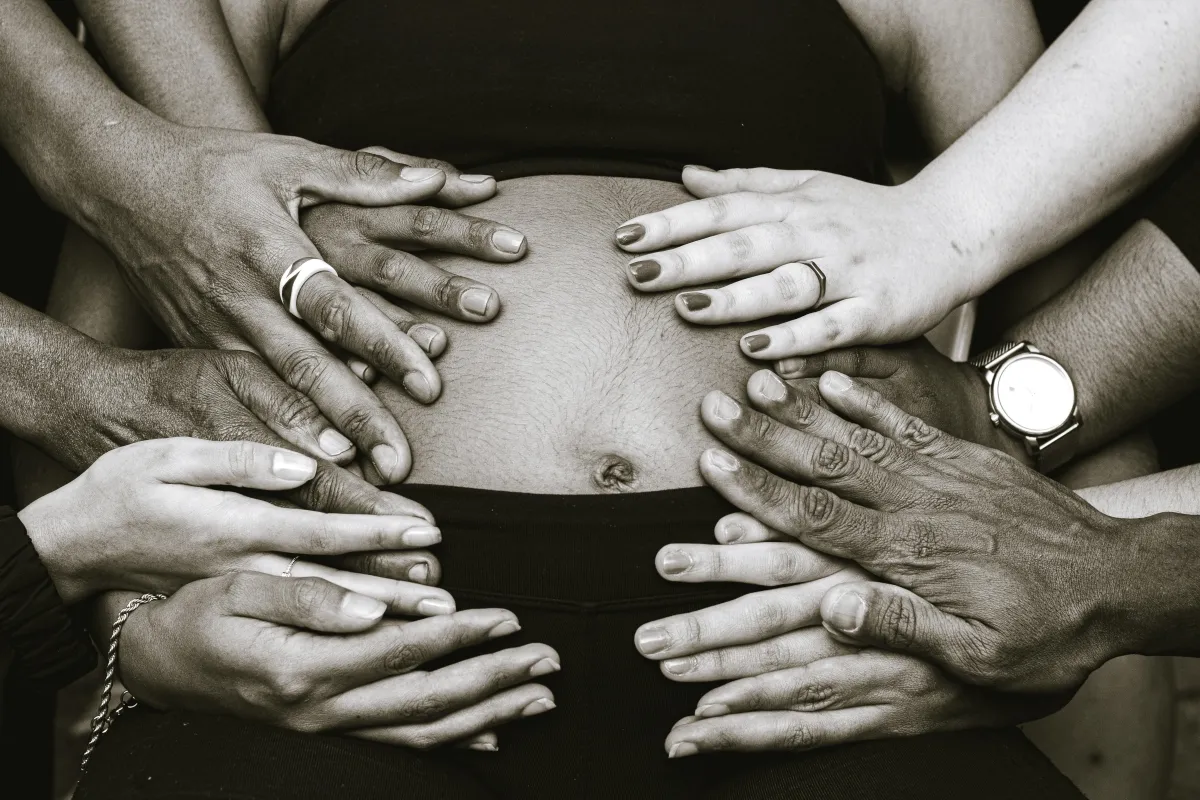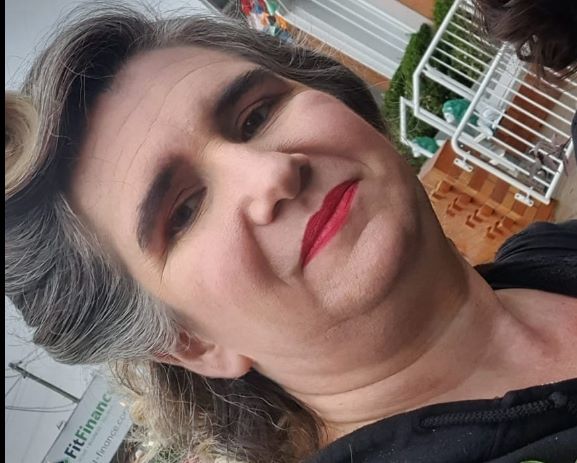INTRODUCING
7 Sisters; Building Your Postpartum Care Community
Transform Your Clients Postpartum Experience Through Connected Community Care
7 Sisters
Building Your Postpartum Care Team

4 Weekly Modules
Weekly Live QnA calls
Bite Sized, Self-Paced Lessons
Community Forum
Flexible recorded delivery to match your busy lifestyle
PDF workbook
Imagine receiving daily support in your first forty days, food prepared, clothing washed, dishes done, someone to hold your baby while you shower, take your older children to the park, and provide real practical support to your family.
Now imagine receiving all that for free while growing your community and making lifelong connections to support your growing family.
Join us now to transform your postpartum experience, grow your community and challenge your blocks around receiving the support.
Create Practical support networks
Engage over 50 hours of free community support
Create long term connections that support you and your child
Reduce your chances of postpartum depression and return to life sooner

"Life Changing!"
"I wish this had existed when I had my kids, it would have changed my life" - Leia
Supporting Postpartum Wellbeing Through Community Care: An Evidence-Based Approach
The Critical Postpartum Support Gap: A Research Perspective
Despite advances in maternal healthcare, a significant gap exists between clinical care and the comprehensive support new mothers require. Research consistently demonstrates that postpartum women face numerous challenges that extend beyond the scope of traditional medical care (Saxbe et al., 2018):
Limited clinical interaction: Standard postpartum check-ups provide minimal opportunity to address comprehensive needsNarrow clinical focus: Appointments necessarily prioritize physical recovery and infant health assessmentInadequate support infrastructure: Healthcare systems lack the resources for extended postpartum careFinancial barriers: Professional postpartum doula services remain financially inaccessible to many familiesTemporal limitations: Even when formal support is available, it typically concludes after a few weeks
These constraints create a critical care gap during what research identifies as a "sensitive period" for maternal health, with long-term implications for both mother and child (Saxbe et al., 2018).
The Evidence: Social Support as a Protective Factor
A substantial body of research demonstrates that social support serves as a powerful protective factor against adverse postpartum outcomes. The evidence is both consistent and compelling:
Mental Health Protection
Multiple studies establish a clear dose-response relationship between social support levels and postpartum depression (PPD) risk:
Women in the lowest quartile of postnatal support demonstrated PPD rates of 44.1%, compared to just 5.4% in the highest quartile—a striking adjusted odds ratio of 9.64 (95% CI = 4.09, 22.69) (Xie et al., 2010)A large-scale study (N=1517) found that "higher levels of social support had a strong protective association against PPD" with significant odds ratios demonstrating this relationship (MOS total score OR, 0.23; 95% CI, 0.19-0.27; p = 6.92E-90) (Pao et al., n.d.)Research across diverse populations consistently shows that "the bigger the social network of a mother, the less postpartum depression occurs" (Vaezi et al., n.d.)Having just two or more support persons available was associated with a 13.6-point lower mean score on the CES-D depression scale (95% CI −17.5, −9.6), compared to women reporting none or only one available person (Surkan et al., n.d.)
Quality of Life Enhancement
Social support significantly improves multiple dimensions of maternal wellbeing:
Longitudinal research demonstrates that social support is "a significant and consistent predictor of higher Health-Related Quality of Life scores" during the perinatal period (Emmanuel et al., n.d.)Systematic reviews show "social support was shown to have a significant positive correlation with outcomes such as breastfeeding, infant care, maternal adaptation, and self-esteem" (Ni & Lin, n.d.)During the COVID-19 pandemic, "respondents who reported that the pandemic had not impacted their childcare access or help received around the house displayed significantly lower depression scores" compared to those experiencing support disruptions (p < 0.05) (Gildner et al., n.d.)
Practical Support: The Critical Element
Research specifically identifies practical, instrumental support as essential:
Women across all demographic groups identify "receipt of instrumental support as essential to their physical and emotional recovery" (Negron et al., 2013)"Postpartum instrumental support represents a potential tool to protect against depression," with healthcare providers advised to "consider disrupted support systems as a risk factor for postpartum depression" (Gildner et al., n.d.)The effectiveness of social support depends on providing "individualised social support... at the 'right time and of the right type'" (De Sousa Machado et al., n.d.)
Importance of Support Network Diversity
Research indicates that the composition and diversity of support networks matter:
"The variety of support providers in a woman's social network is important," suggesting that a diversified support structure offers optimal protection against postpartum depression (Reid & Taylor, n.d.) Systematic reviews recommend that "family members such as the partners and grandmothers should be involved in the provision of care towards the postpartum women" (Ni & Lin, n.d.)"Face-to-face care provided in the home through informal care" is particularly desired and effective (De Sousa Machado et al., n.d.)
Barriers to Accessing Social Support
Despite its established benefits, research identifies significant barriers that prevent women from mobilizing social support:
Key obstacles include "availability of trustworthy child care, cost of child care, demands of infant care, changing priorities, a transient population, and availability of family" (Barkin et al., n.d.) Many women expect support "should be provided without asking," creating a gap between expected and received support (Negron et al., 2013) Cultural factors and beliefs about independence and self-sufficiency often prevent women from actively seeking assistance (Barkin et al., n.d.)
Eastern Asian Traditions
Southeast Asian Wisdom
China - "Zuo Yuezi" (Sitting the Month)
0-40 days of dedicated maternal care
Specialized "confinement ladies" or grandmother as primary caregiver
yang-building foods and broths
Mother stays warm, avoiding cold air and water
All household duties handled by family
Focus on restoring vital energy
Korea - "Saam-chil-il"
21 days of intensive mother care
Daily seaweed soup for healing and milk production
Professional postpartum care centers available
Mother wears special warm clothing
Complete rest and recovery focus
Malaysia - "Pantang"
44-day confinement period
Traditional massage daily
Belly binding (bengkung)
Hot stone treatments
Herbal baths and steaming rituals
Full-time confinement lady support
Thailand - "Yu Fai"
Heat therapy practices
Herbal steam treatments
Traditional postpartum massage
Special dietary protocols
Family-centered care system
African Traditions
Nigeria- Yoruba Culture:
Hot pepper soups for healing
Special body wrapping
40-day protected period
Daily massage practices
Grandmother as wisdom keeper
Ethiopian Traditions
40-day rest period
Special butter massage
Daily ceremonial practices
Community meal sharing
Traditional binding practices
Modern European Care Models
Netherlands - "Kraamzorg"
Professional postpartum care
Daily in-home support (8-10 days)
Covered by health insurance
Professional care and education
Family adjustment support
Nordic Countries
Extended parental leave
Home visits by midwives
Community support groups
Professional care networks
Family-centered approach
7 Sisters: A Research-Aligned Solution to Bridge the Postpartum Support Gap
The "7 Sisters: Building Your Postpartum Community" program directly addresses the challenges identified in the literature by providing a structured framework for pregnant women to create sustainable, practical support networks before birth.
Program Development Based on Research Findings
The program integrates key findings from postpartum research:
Preventative timing: Research demonstrates stronger associations between postnatal support and PPD prevention (Xie et al., 2010), supporting our prenatal intervention approach
Network diversity focus: The program emphasizes creating diverse support networks based on evidence that "the variety of support providers in a woman's social network is important" (Reid & Taylor, n.d.)
Emphasis on practical support: Program content focuses heavily on instrumental support, which research identifies as "essential to physical and emotional recovery" (Negron et al., 2013)
Barrier mitigation: The program directly addresses identified barriers to support mobilization through structured planning and communication tools
Program Components
The 7 Sisters program provides a comprehensive framework for support network development:
1. Support Network Assessment & Development
Participants identify potential support providers and systematically address gaps in their community network.
2. Communication & Request Frameworks
The program provides evidence-based tools to overcome the reluctance many women feel in asking for help (Negron et al., 2013).
3. Practical Support Scheduling
Participants develop concrete plans for meal provision, household assistance, and infant care support—the exact forms of instrumental support research associates with improved outcomes (Gildner et al., n.d.).
4. Sustainability Planning
The program addresses the challenge of support diminishing over time by creating systems for ongoing community engagement.
Clinical Outcomes & Benefits
Healthcare providers referring to 7 Sisters can expect evidence-based outcomes:
Physical Health Benefits
Protected recovery time
Improved nutrition through meal support
Enhanced sleep quality and duration
Reduced physical strain during recovery period
Mental Health Protection
Significant reduction in PPD and anxiety risk based on established protective effects of support networks (Pao et al., n.d.; Vaezi et al., n.d.)
Decreased isolation and associated physiological stress responses
Enhanced maternal self-efficacy
Improved stress management resources
Family System Integration
Balanced attention for older children
Partner relationship preservation
Smoother family adjustment
Distribution of care responsibilities
Clinical Relevance & Referral Indications
The 7 Sisters program complements clinical care by addressing social determinants of health that fall outside traditional medical encounters.
Particularly Beneficial For Patients Who:
Experienced isolation during previous postpartum periods
Present with anxiety regarding the upcoming postpartum transition
Have limited family support proximity
Demonstrate difficulty with help-seeking behavior
Are transitioning to multiple children
Program Structure
Timing: Designed for completion during pregnancy
Format: 4-week online course with focused video modules
Engagement: Weekly live Q&A sessions with the facilitator
Resources: Comprehensive workbook and practical templates
Community: Supportive participant interaction
Access: 9-month availability of all materials
Professional Collaboration Opportunities
We welcome professional engagement with the 7 Sisters program:
Content review: Detailed discussion of program methodology
Patient feedback: Systematic collection of outcome data
Program development: Collaborative improvement initiatives
Educational presentations: Professional development opportunities
How to Refer Your Pregnant Patients
Direct expectant mothers to:
www.nurtureonline.org/7sisters
For professional consultation, contact Katerina directly at
In-person or virtual meetings available to discuss implementation
Practice materials available upon request
A Call to Evidence-Based Practice
As Ni & Lin (n.d.) concluded in their systematic review, "healthcare professionals ought to be equipped with the knowledge on social support so that they can better assess the needs of postpartum women and develop a support plan." The 7 Sisters program offers the structured methodology to fulfill this evidence-based recommendation, bridging the gap between research and practice in postpartum care.
References
Barkin, J. L., Bloch, J. R., Hawkins, K. C., & Thomas, T. S. (n.d.). Barriers to optimal social support in the postpartum period.
De Sousa Machado, T., Chur-Hansen, A., & Due, C. (n.d.). First-time mothers' perceptions of social support: Recommendations for best practice.
Emmanuel, E., St John, W., & Sun, J. (n.d.). Relationship between Social Support and Quality of Life in Childbearing Women during the Perinatal Period.
Gildner, T. E., Uwizeye, G., Milner, R. L., Alston, G. C., & Thayer, Z. M. (n.d.). Associations between postpartum depression and assistance with household tasks and childcare during the COVID-19 pandemic: evidence from American mothers.
Negron, R., Martin, A., Almog, M., Balbierz, A., & Howell, E. A. (2013). Social Support During the Postpartum Period: Mothers' Views on Needs, Expectations, and Mobilization of Support. Maternal and Child Health Journal, 17, 616-623.
Ni, P. K., & Lin, S. L. S. (n.d.). The role of family and friends in providing social support towards enhancing the wellbeing of postpartum women: a comprehensive systematic review.
Pao, C., Guintivano, J., Santos, H., & Meltzer-Brody, S. (n.d.). Postpartum depression and social support in a racially and ethnically diverse population of women.
Reid, K. M., & Taylor, M. G. (n.d.). Social support, stress, and maternal postpartum depression: A comparison of supportive relationships.
Saxbe, D., Rossin-Slater, M., & Goldenberg, D. (2018). The transition to parenthood as a critical window for adult health. American Psychologist, 73(9), 1190-1200.
https://doi.org/10.1037/amp0000376
Surkan, P. J., Peterson, K. E., Hughes, M. D., & Gottlieb, B. R. (n.d.). The Role of Social Networks and Support in Postpartum Women's Depression: A Multiethnic Urban Sample.
Vaezi, A., Soojoodi, F., Banihashemi, A. T., & Nojomi, M. (n.d.). The association between social support and postpartum depression in women: A cross sectional study.
Xie, R-H., He, G., Koszycki, D., Walker, M., & Wen, S. W. (2010). Prenatal Social Support, Postnatal Social Support, and Postpartum Depression. Annals of Epidemiology, 20(2), 169.
Traditional Postpartum Care Across Cultures
Latin American Traditions
"La Cuarentena" (The Quarantine)
40 days of protected rest
Female relatives manage household
Special warming foods and teas
Mother-baby bonding prioritized
Traditional herbal remedies
Community support network
Middle Easten Traditions
Iran
Hot/cold food balance
40 days of family support
Traditional herbal drinks
Special postpartum garments
Extended family care system
Egypt
"Arbaeen"
40-day recovery period
Daily massage and binding
Special herbal preparations
Female family support network
Community celebration at completion
South Asian Wisdom
India
40-day confinement period
Daily massage for mother and baby
Special warming foods and spices
Traditional herbal preparations
Extended family care system
Specific dietary protocols
Why This Course Exists - A Vision for Change
Our ultimate vision isn't to run courses - it's to transform how our society supports new mothers. We envision a Western culture where comprehensive postpartum care is as natural as breathing, where no mother faces the fourth trimester alone, and where community support is viewed as essential healthcare, not a luxury. We dream of a world where governments and healthcare systems recognize and fund postpartum community care as vital preventative medicine - not just for mothers, but for the wellbeing of entire communities. But cultural change starts with individual experience. Each supported postpartum period ripples outward, touching families, friends, and neighborhoods with the profound impact of community care. As these ripples spread, they create momentum for policy change, healthcare reform, and cultural transformation. Right now, we need this course because our culture has forgotten what our ancestors knew. We're bridging the gap between where we are and where we need to be, changing the culture of postpartum care one family at a time. Each mother who experiences true community support becomes a living example of what's possible, bringing us one step closer to a world where this level of care is simply the norm.
Questions? Contact us at
Note: While this program helps build community support, it works beautifully alongside professional postpartum care services. Many families find the combination of community and professional support most beneficial.
Want to stay updated?

CONTACT
LEGAL
FOLLOW US
Copyright 2024. Nurture Online. All Rights Reserved.
